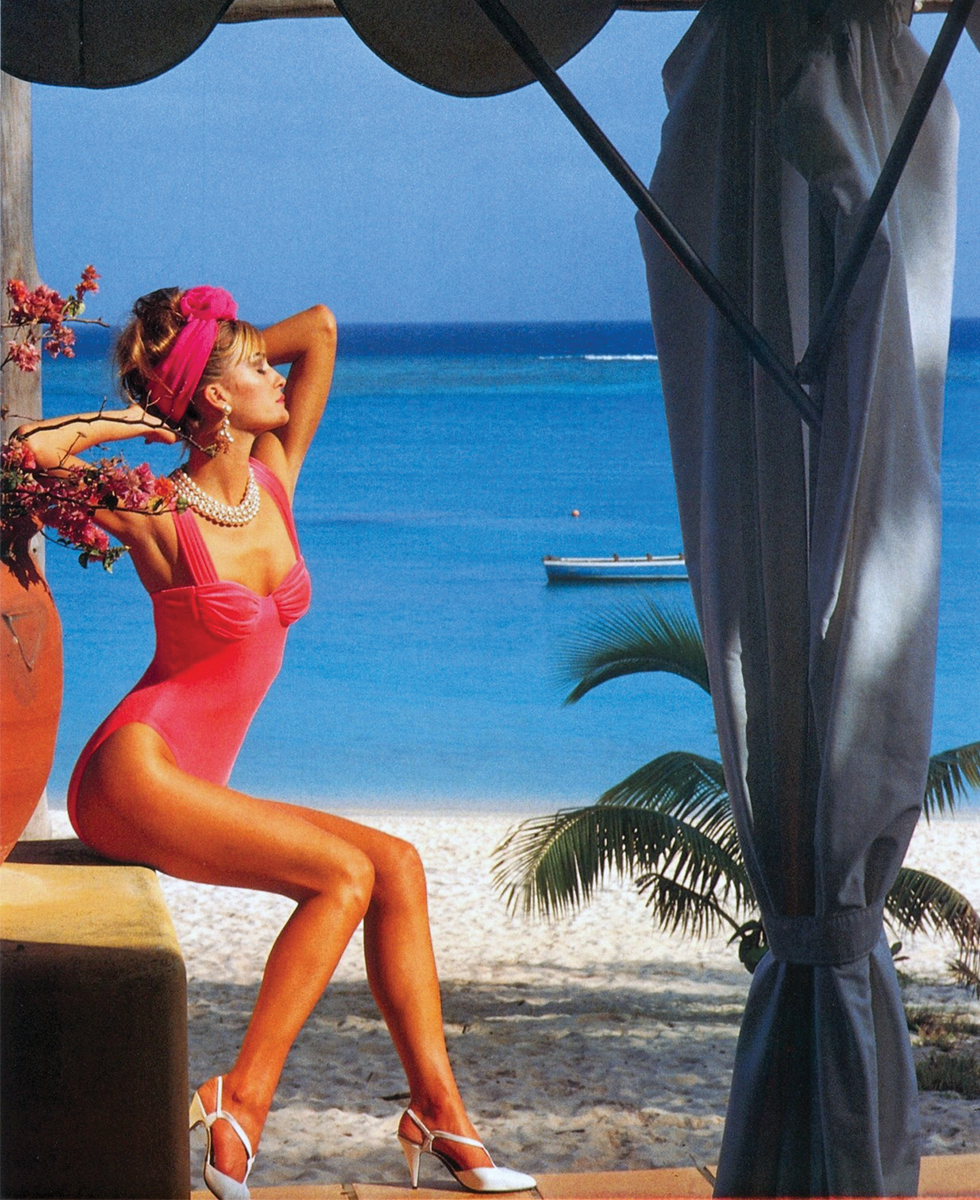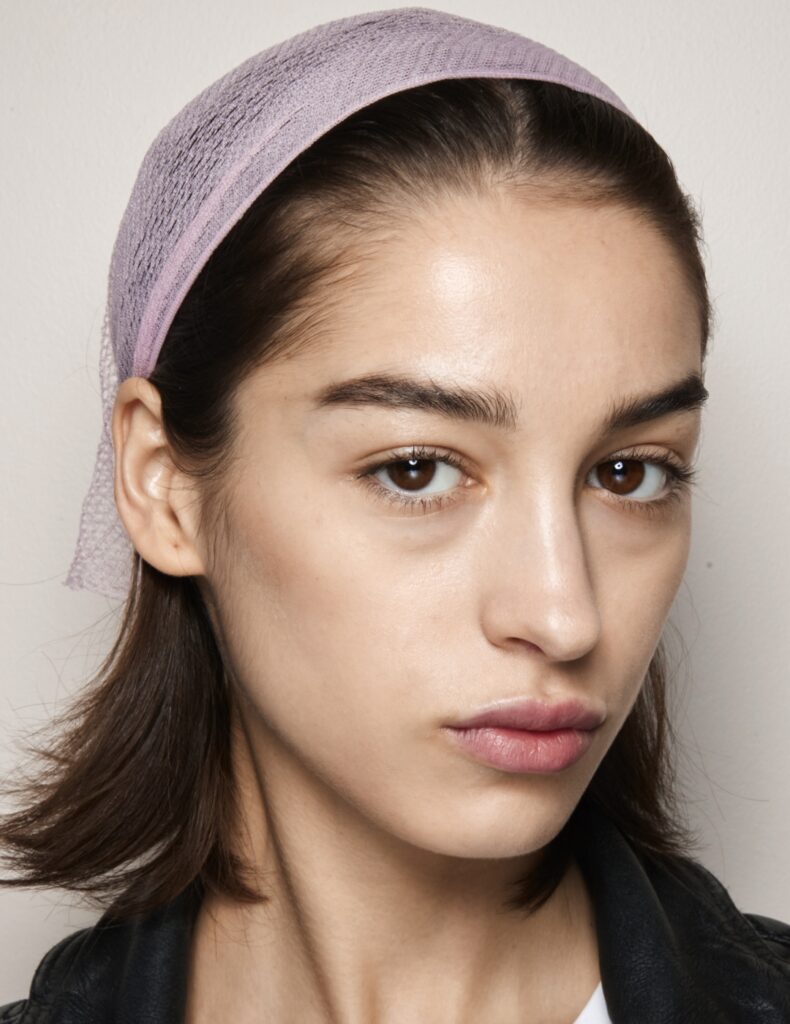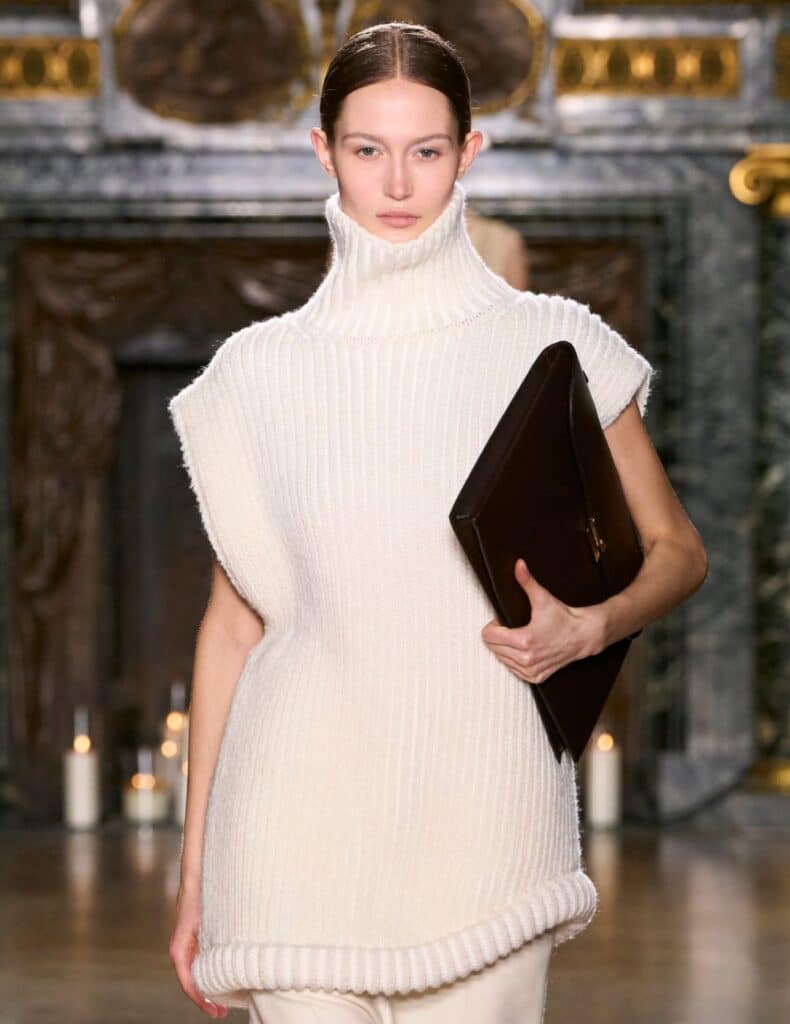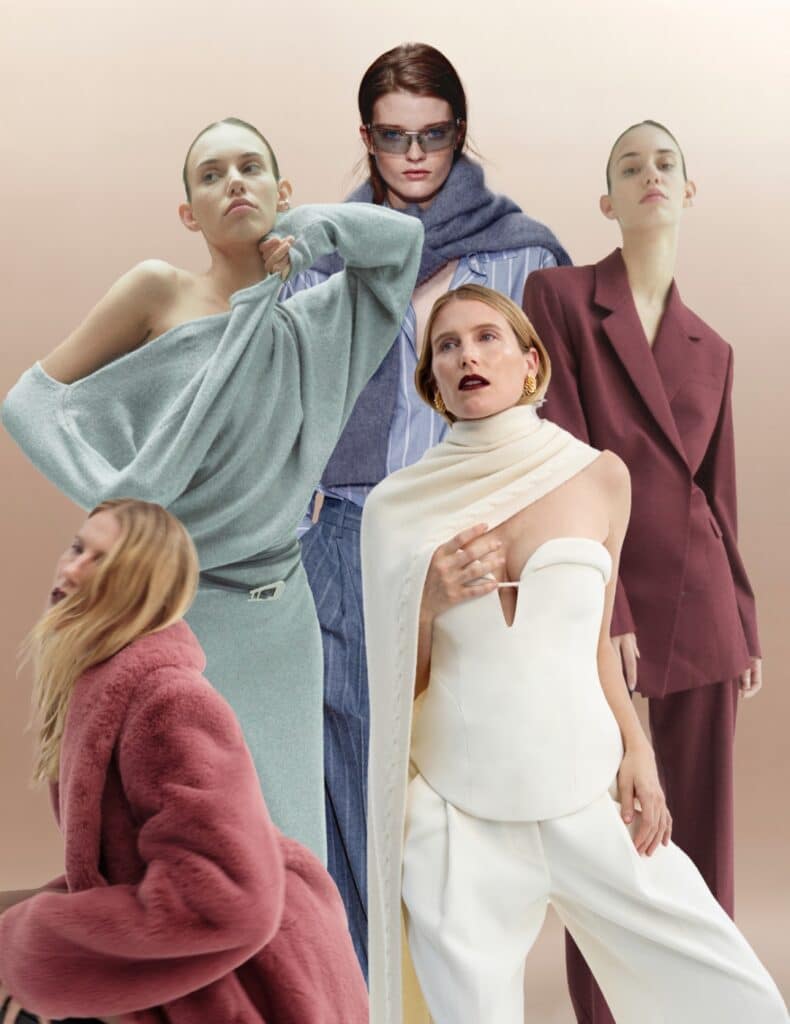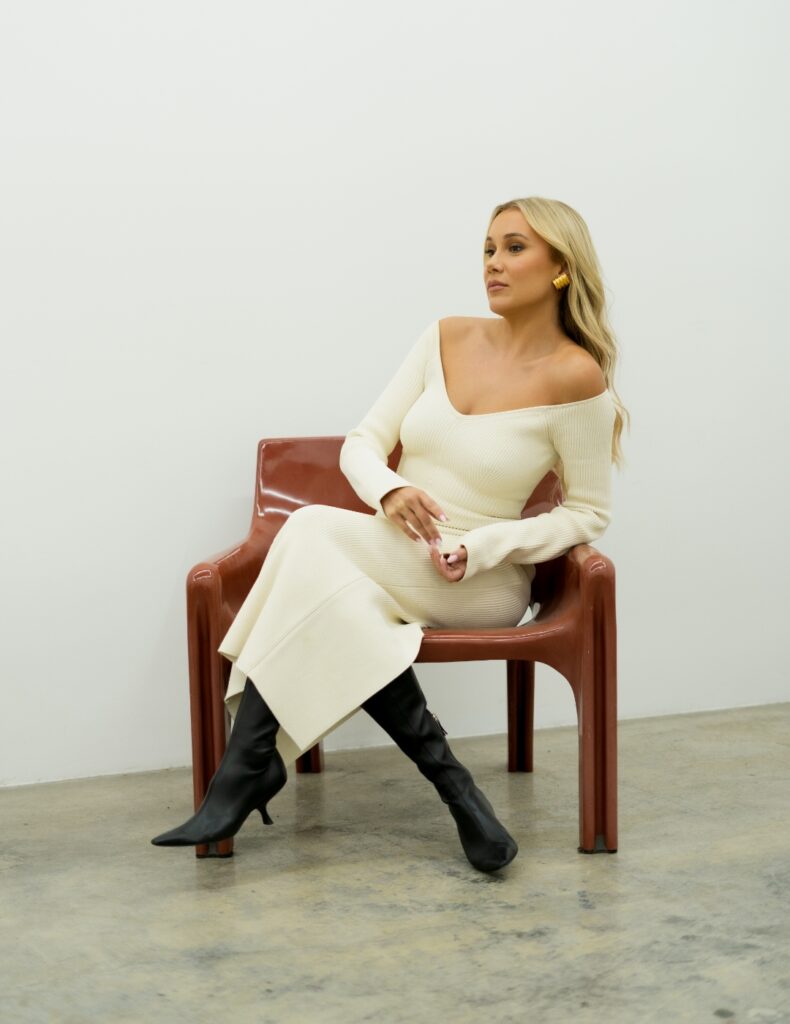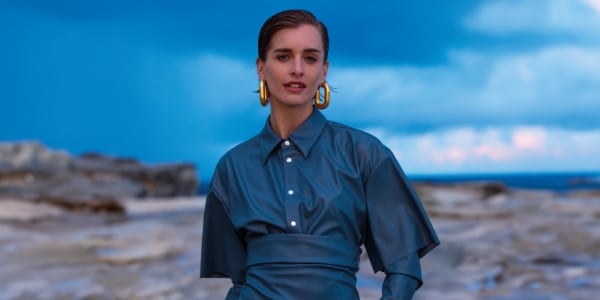They may be teenie-weenie, but swimsuits and bikinis are indicative of a lot more than our collective penchant for polka dots, says Jessica-Belle Greer.
For a fashion garment that requires the bare minimum of material, the swimsuit has taken on a surprising number of incarnations – from Hollywood glamour swimsuits to string bikinis. Look through old summer issues of magazines and you’ll see the swimsuit has been stretched and twisted into many different styles to suit the times, including the ladylike fuchsia number above worn by model Kylie Bax for Fashion Quarterly’s 1991 issue.
We follow the swimsuit through history, with options of what to shop now if you want to channel a certain era.
Ancient times:
Before Victorian morality materialised a need for modesty, most people were happy to bathe naked or in their knickers – but a precursor to the bikini can be seen in mosaics from Ancient Greece. Although most men were game enough to do sports in the nude, women appear to have exercised with slim bandeau tops and brief-cut bottoms.
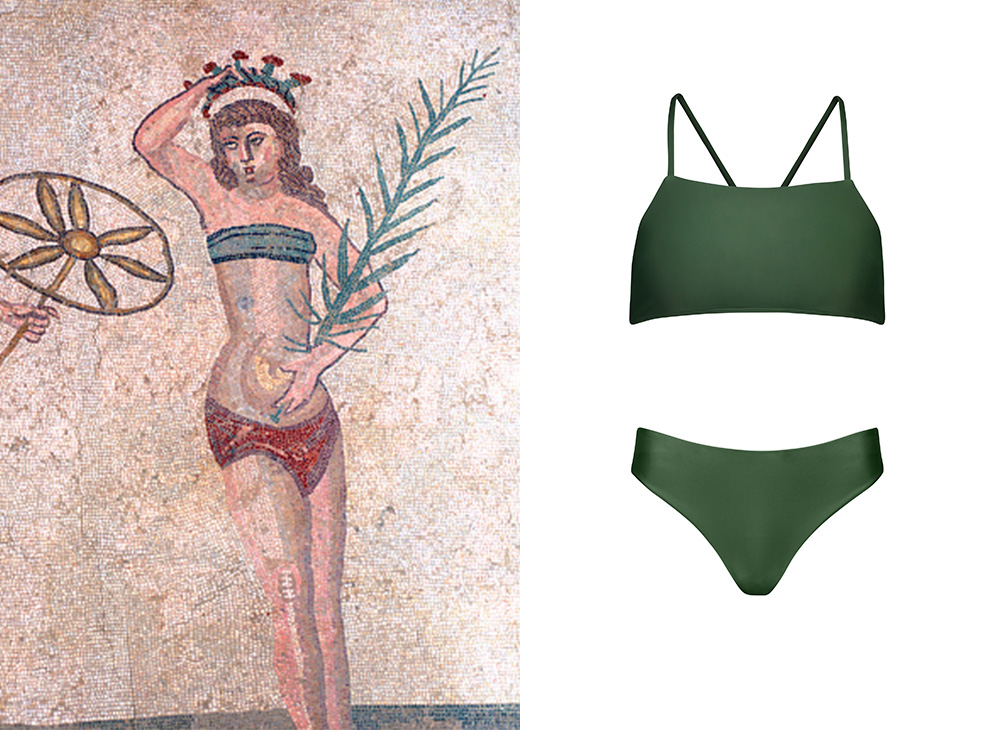
Left: A Greek mosaic showing women in bikini-esque work out gear. Right: Bikini top, $119 , and brief $119, by Kowtow.
1800s:
With the arrival of trains and trams, more people than ever had access to the sea and its newly touted health benefits. But for women, cumbersome bathing dresses, some even weighted down to ensure they did not float up, made it near impossible to swim. Drowning became known as “the New Zealand death” to those who had relocated to the wild Antipodes.
1880s:
As going for a dip became even more popular, the first swimsuits, which resembled a belted wool dress over long bloomers, were designed. Sea pools such as St Clair in Dunedin and Parnell Baths in Auckland were set up to both teach swimming and enforce strict dress codes.
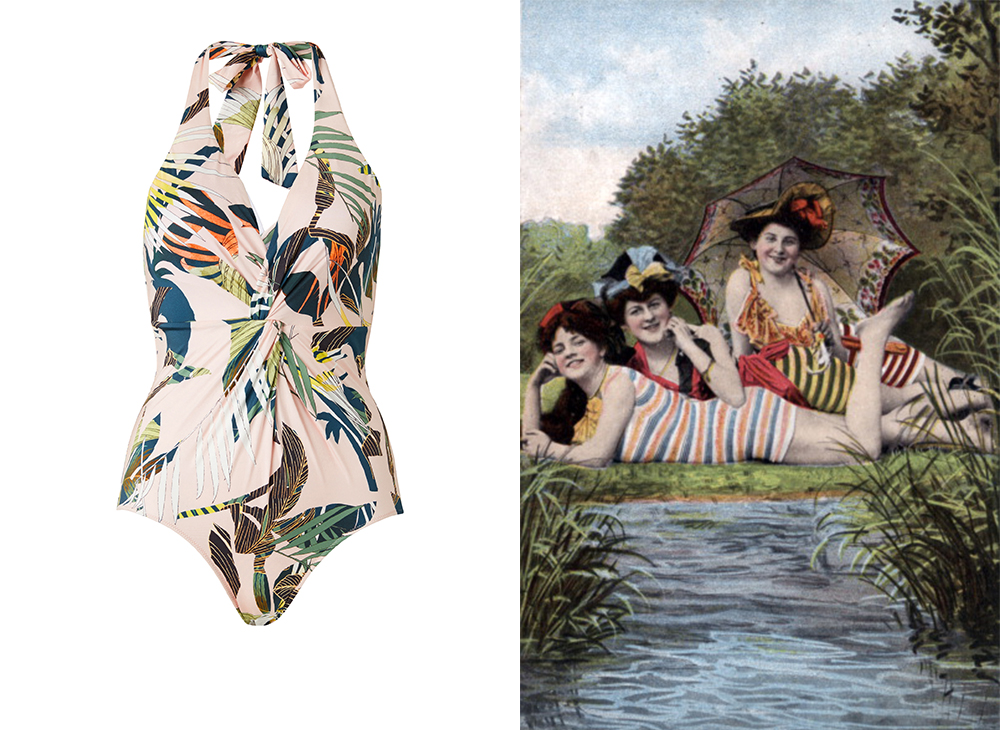
Left: One piece, $167, by Witchery. Right: Bathers in 1910.
1900s:
In the early 1900s, the first wave of women athletes demanded more from their swimwear, but not everyone lapped up the newly streamlined styles. Australian swimming champion Annette Kellerman was arrested for indecency in the US in 1907 for her skirtless and sleeveless one-piece which ended above her knees, but her look still made it into the mainstream. Local firm Lane Walker Rudkin produced the Canadian in 1910, a boyish swimsuit – over the shoulder and to the knee.
1920s:
Soon everyone was wearing a sleeveless maillot style, which still went to the knees. Championed by French Riviera designers including Coco Chanel, it was surprisingly sexy for the time. With New Zealand turning to Europe for inspiration, fashion started to pick up pace. Stripes and spotted swimsuits surfaced, as well as sunshades, and embellished hats and even beach capes were sported in local fashion magazines. While women were subjected to the swimsuit police overseas, New Zealand was ahead of the time.
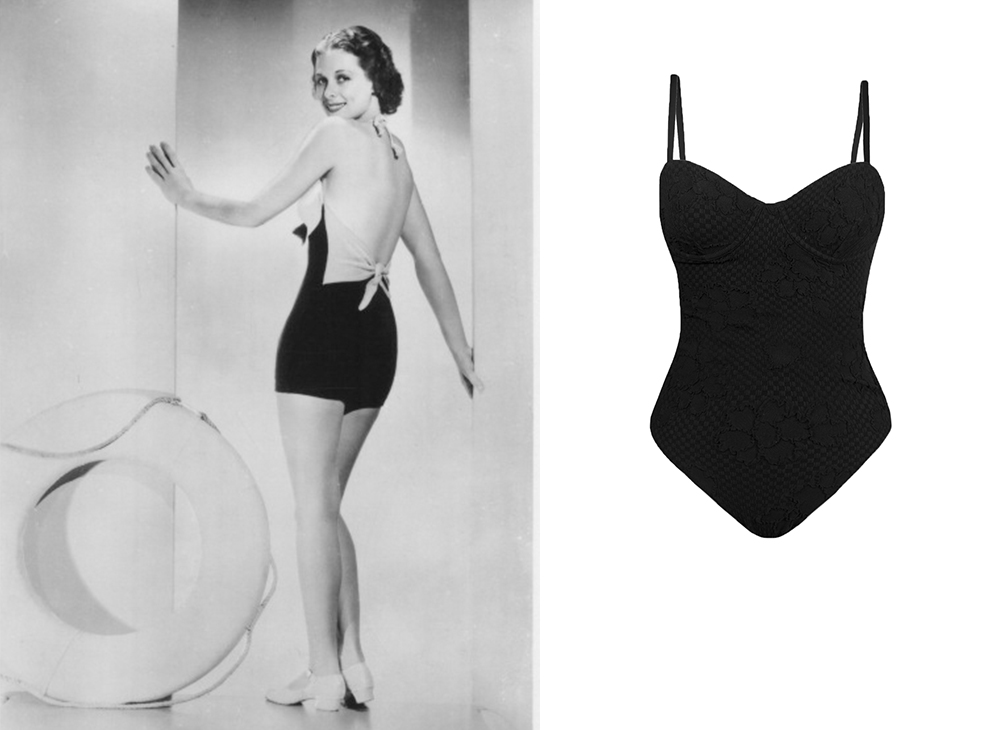
Left: Hollywood actor Irene Hervey. Right: Swimsuit, $280, by Lonely.
1930s:
When going to the movies was just as popular a pastime as going to the beach, Hollywood’s fascination with swimmers made it to our shores. While men were going topless on the beach during this decade, women started taking revealing style cues from unabashed screen sirens such as Jean Harlow, the first star photographed in a skimpy swimsuit, and Betty Grable with her ‘million-dollar legs’.
1940s:
World War II’s fabric rationing had a silver lining for those who wanted to show more skin on the beach – wearing a two-piece was for the good of the country, after all. Following the war, the development of stretchy fabrics, such as Jantzen, and built-in brassieres meant technical swimsuits could enhance the figure, just when New Zealand’s Annual Hollidays Act (1944) made way for more fun – and flaunting – in the sun.
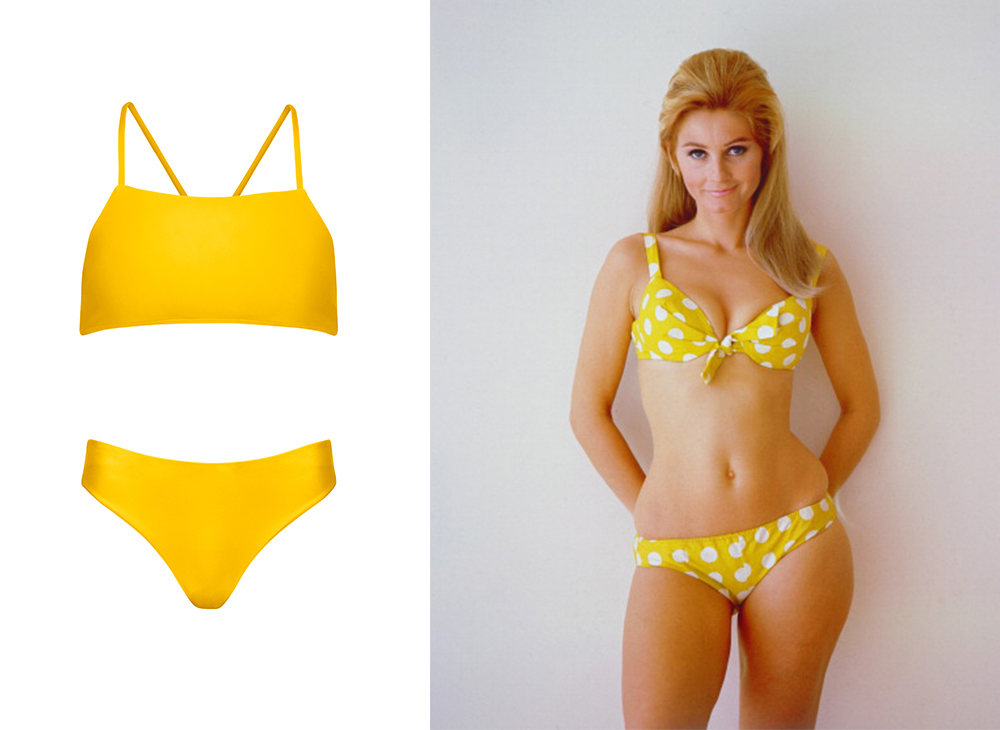
Left:. Bikini top, $119 , and brief $119, by Kowtow. Right: Acto Jill Ireland, wearing a yellow polka dot bikini circa 1960.
1950s:
Hollywood glamour was on the rise, as were beauty pageants with the controversial swimwear segment. Styles were all about a wasp-like shape à la our favourite starlets, and some could easily pass as ball gowns had one thrown a tulle skirt over the top. Million Dollar Mermaid, a glossy aqua musical based on Kellerman’s life, made it seem plausible to swim, or at least sunbathe, in sequins.
1960s:
While the bikini was invented by French mechanical engineer Louis Réard in 1946 (he named it after Bikini Atoll, which was a nuclear test site at the time), the stringy style was not to catch on until the 1960s, when trends became more youthful. Itsy Bitsy Teenie Weenie Yellow Polka Dot Bikini played on the radio as Californian beach chic permeated all sandy shores and the skimpy suit became part of carefree coastal culture.
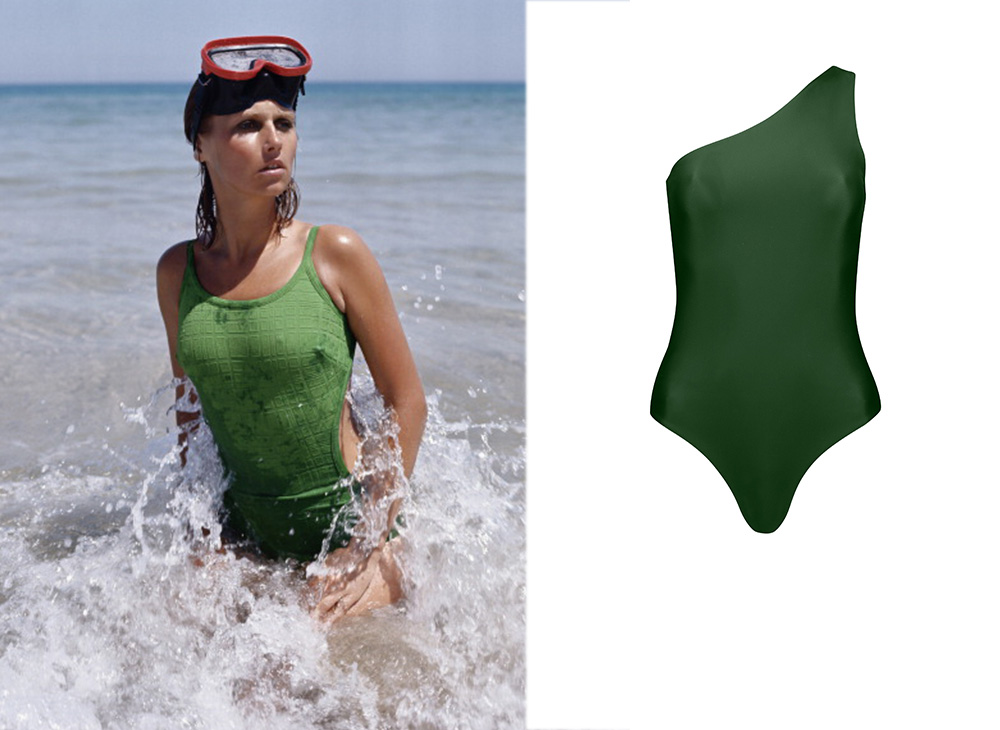
Left: A model at the beach, circa 1973. Right: Swimsuit, $239 by Kowtow.
1970s:
When we didn’t know any better, our quest for the best tan led togs to get itsier and bitsier, spurred on by iconic swim moments like Bo Derek’s in the film 10. Local brands such as Expozay from Tauranga jumped on the racy new swimsuit trend and proved that, for all our time spent at the beach, we had what it took to show the rest of the world how it’s done – in a high-cut, boldly patterned two-piece and visor.
1980s:
With nylon and Lycra now everywhere, toned beach bodies were carved out at the gym in the hope of becoming a Baywatch babe. Lorraine Downes won Miss Universe, Rachel Hunter graced the pages of Sports Illustrated and Kiwis wore their togs with pride, quick to purchase a piece from new brand Moontide.
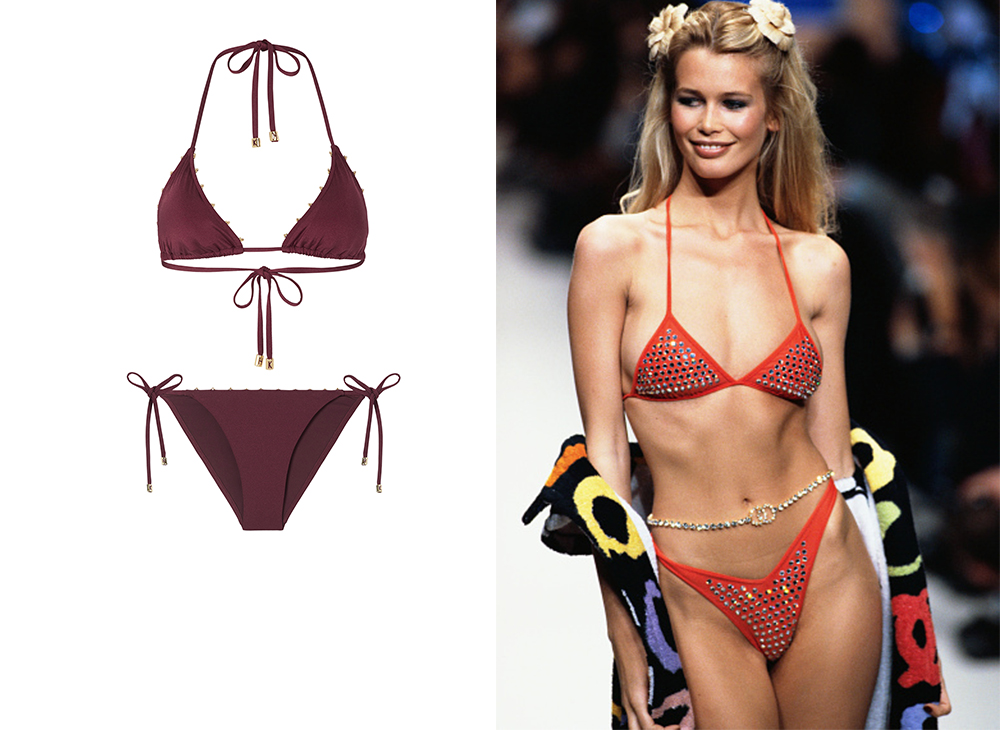
Left: Heidi Klum bikini top, $80, and bottom, $80, from Bendon. Right: Claudia Schiffer modeling Chanel swimwear in 1995.
1990s:
Swimsuits were still closely linked to sports activities, and even more muscular bodies were coming into focus thanks to the popularity of triathlons. A line was drawn in the sand and we either dressed in functional designs on one side, or over-the-top glamour on the other. Individuality was thankfully now being celebrated and tankinis and bikini ‘separates’ meant we could mix and match to create our own unique set.
2000s:
While the triangle bikini reigned supreme, especially in surf culture, New Zealand continued to make its mark with forward-looking swimwear. Lonely, for example, made a splash with lingerie-inspired looks that embraced all shapes and sizes, because every body is a beach body.
To see all new season swimwear, pick up the latest copy of Simply You.



